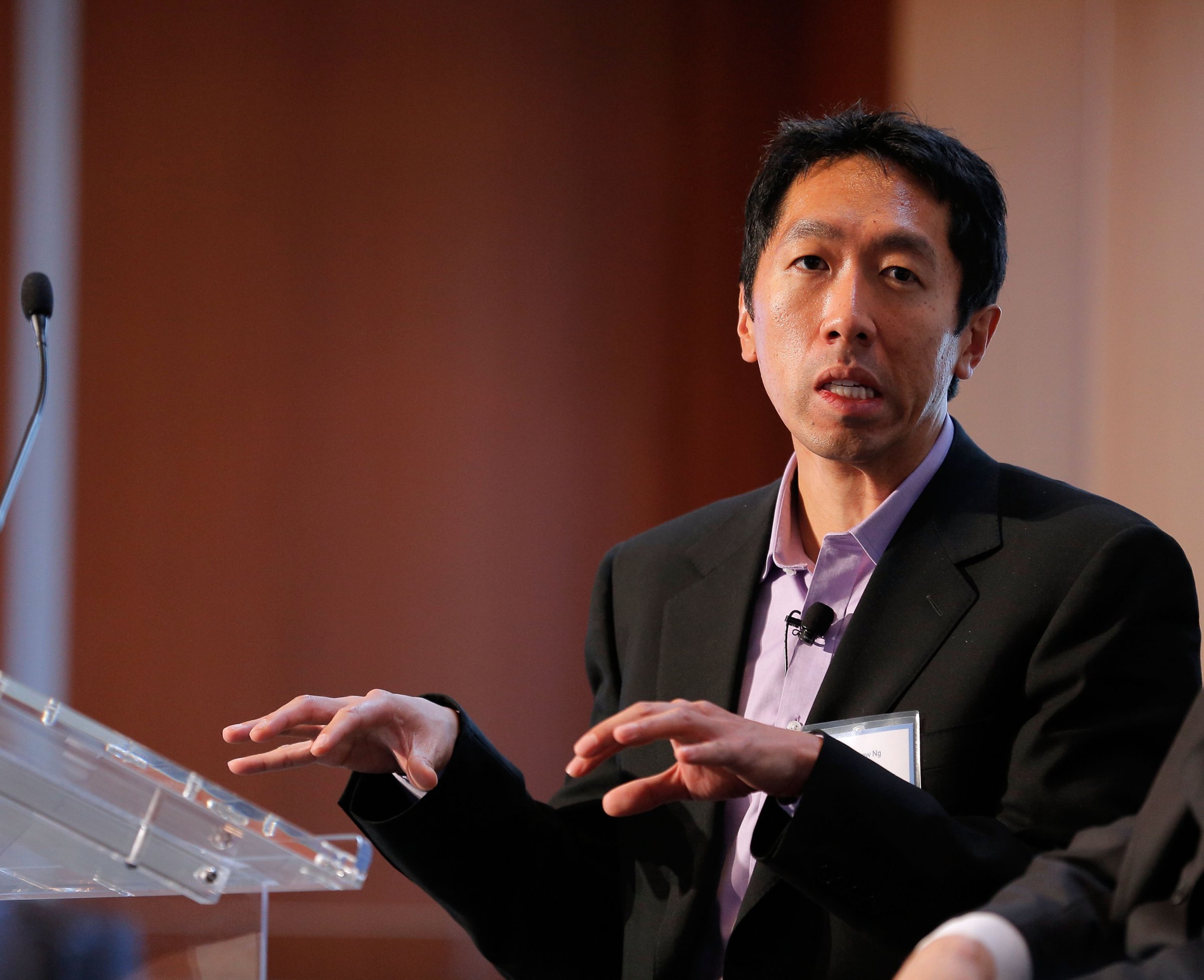
Trucks that can drive themselves along delivery routes. Computers capable of defeating world champions in a notoriously complex game. Apps that can translate sentences with near human-like accuracy. These are just a few of the milestones artificial intelligence, or AI, has enabled in the past year — and experts say it will only keep changing our lives at a breakneck pace.
But some of the world’s greatest technological minds, like Microsoft co-founder and philanthropist Bill Gates to Tesla and SpaceX and Tesla CEO Elon Musk, have expressed misgivings about AI. Musk, who backs an AI research group aimed at keeping the technology open and beneficial to the public, has previously said the technology could be our “biggest existential threat.”
Andrew Ng, chief scientist at Chinese Internet search giant Baidu and co-inventor of the Google Brain, believes there are other, more immediate risks concerning AI that aren’t getting enough attention. “I think that the conversation is distracting governments and society from the real ethical issues facing AI,” Ng tells TIME. “And we shouldn’t whitewash these issues by talking about things that could be hundreds of years away.”
The Google Brain is the search giant’s research arm working on machine learning, natural language understanding, and other technologies that power many of Google’s products. Ng now oversees Baidu’s growing Silicon Valley AI research lab.
Ng recently spoke with TIME about the future of artificial intelligence, the important ethical concerns around its development, and more. Here are the biggest takeaways from our conversation.
Computers are becoming conversationalists
Between smart speakers like the Amazon Echo and the proliferation of chatbots on platforms like Facebook Messenger, tech companies are increasingly working to make computers better able to hold natural conversations with users. “I think 2017 will be the year of the conversational computer,” Ng said. “We’re seeing very strong data that this is coming.”
Ng believes that the key to unlocking a voice-controlled computing future is creating a software platform that will run across devices, similar to how Android powers lots of different gadgets today. “It won’t be one hardware device, it will be multiple hardware devices in multiple form factors.” Baidu has its own voice-friendly software called DuerOS which can answer questions and connect with third-party services in China.
AI has three key ethical dilemmas
Tech giants like Musk and Gates have expressed concern over the potential long-term threats AI may pose. But Ng believes there are three areas that we should be worried about today: AI’s impact on human workers, information sharing among AI researchers, and honesty in AI software.
“Job displacement is so huge I’m tempted to not talk about anything other than that,” said Ng. “But I believe in honesty in AI.”
Ng shared an example: If a ride-sharing startup or food takeout service is using artificial intelligence to make predictions about delivery and arrival times, that AI tool should provide the most accurate estimate possible.
Openness is also critical, Ng believes. Artificial intelligence researchers often publish findings in academic papers to foster growth in the field. But hiding technical details in such reports “goes against the spirit of openness,” according to Ng. “If you want to publish data, you should do it to share knowledge,” he said. “You don’t have to share everything, but if you don’t want to share something there are different ways to talk other than [through] the academic publishing system.”
The impacts of AI will affect nearly every industry
Many technology companies, from Alphabet’s Google to Facebook and Microsoft, have emphasized their focus on artificial intelligence in recent years. But the long-term impacts of AI will reach far beyond just the technology industry. IBM’s Watson platform is already changing the way doctors diagnose disease, for instance.
“We’re making this analogy that AI is the new electricity,” Ng said. “Electricity transformed industries: agriculture, transportation, communication, manufacturing. I think we are now in that phase where AI technology has advanced to the point where we see a clear path for it to transform multiple industries.” Specifically, Ng sees AI being particularly influential in entertainment, retail, and logistics.
Researchers hope AI software will soon be able to learn more on its own
Technologists are working toward new advancements in a technique known as “unsupervised learning,” which enables machines to learn from data that hasn’t been labeled by humans. Many current AI programs use what is called “supervised learning,” in which they’re given raw data and a desired output. For example, AI software may learn how to recognize speech after being given hours and hours of audio data and the corresponding transcript of that audio to learn from. Now, researchers are working toward developing AI that can can learn without being provided that desired output.
“If there’s a technical breakthrough there it will open up a vastly larger amount of data for AI to process,” said Ng.
More Must-Reads from TIME
- Why Biden Dropped Out
- Ukraine’s Plan to Survive Trump
- The Rise of a New Kind of Parenting Guru
- The Chaos and Commotion of the RNC in Photos
- Why We All Have a Stake in Twisters’ Success
- 8 Eating Habits That Actually Improve Your Sleep
- Welcome to the Noah Lyles Olympics
- Get Our Paris Olympics Newsletter in Your Inbox
Contact us at letters@time.com